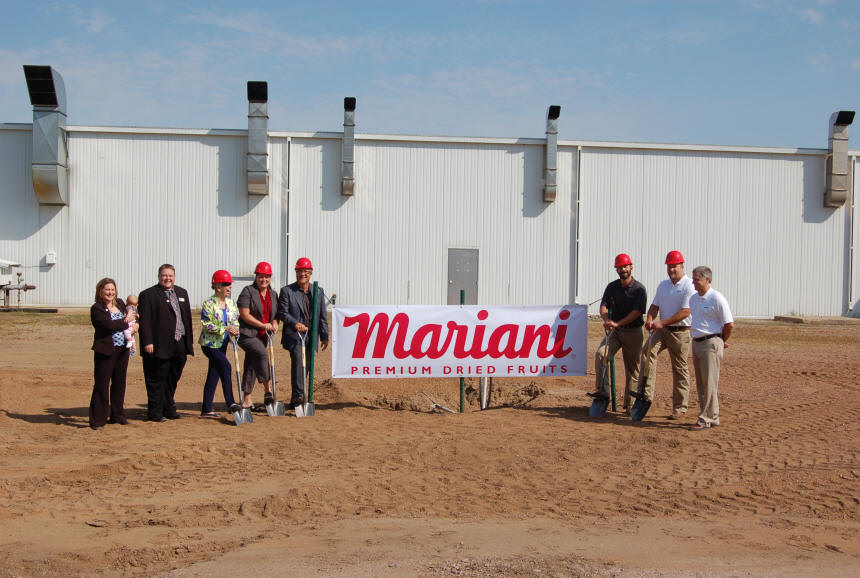E-Update
Wisconsin State
Representative Scott Krug (R-Wisconsin Rapids) applauds AT&T for their
program.
"Cell Phones for
Soldiers are a very easy way for us to show our gratitude toward our
service men and women who are serving away from their homes this
summer," says Krug. "Keeping the lines of communication open between our
service personnel and their loved ones is so important for morale,
particularly during a time of year when many of us are taking the time
to enjoy the summer with our own families."
Cell
Phones for Soldiers were founded in 2004 by teenagers Brittany and
Robbie Bergquist as a way for military families to keep in touch with
family back home. To date they have collected more than 7.5 million cell
phones and provided military personnel with more than 90 million minutes
of pre-paid calling cards. The program's main revenue stream comes from
the recycling of used cell phones.
“Bulls Eye Credit Union was
gracious enough to help us be the collection point of this charity
drive,” states Krug. “My sincerest thanks go to the employees and
especially President David Stark for being so accommodating”
Collection dates will be from October 3rd
through the 31st at your local Bulls Eye credit union.
Groundbreaking at Mariani
Representative Krug attended the
Groundbreaking ceremony at Mariani Packing Company on August 26th.
Mariani Packing Co. is a California-based producer and packager of
dried fruits. They are expanding in Wisconsin Rapids and hope
to add 20 positions by the end of the year.

State Unemployment
Debt and how it affects Employers
I
have been receiving a lot of calls and e-mails about Wisconsin's
Unemployment Insurance (UI) system. This week I read a press
release from my colleague State Representative Dan Knodl. He
is a small business owner and I believe he summarized the situation
best.
State
Unemployment Debt to Hit Employers
By
Representative Dan Knodl
August 31, 2011
One of the many
consequences of our economic difficulties is the condition of Wisconsin’s
Unemployment Insurance (UI) system. The economic downturn of the last few
years has caused a huge deficit in the state UI reserve fund that was
addressed by borrowing money from the federal government, the interest on
which is now coming due.
UI benefits do not come
from general state tax dollars. The funds that pay UI benefits come from
taxes levied on employers in Wisconsin. Then, when someone loses a job and
is granted UI benefits, those benefits are paid out of the dollars collected
from employers.
Because of the high number
of UI applicants as a result of job losses over the last few years, so many
people were laid off and collecting UI benefits that the state UI reserve
fund went dry. In fact, the fund currently faces a deficit of about $1.3
billion.
As a result, Wisconsin
borrowed money from the federal government – about $1.5 billion – in order
to be able to continue to pay UI benefits for claims that continued to pour
in. This was not free money – we have to pay it back.
Like any other loan, the
funds we borrowed from the federal government need to be paid back with
interest. In 2009 and 2010, the federal government agreed to waive the
interest, but they did not grant the same waiver for 2011. Effective
January 1, 2011, the federal government began charging interest on the UI
funds that we borrowed.
Since the UI reserve fund
is empty, where are we getting the money for interest? There is a process
set in our existing State Statutes for such a situation. Beginning on
September 9, 2011, employers whose taxable payrolls for calendar year 2010
were greater than $25,000 will pay a “Special Assessment for Interest” that
is meant to begin the process of paying our debt to the federal government.
Notices of this assessment were mailed in early August.
While the assessment will
go away once the federal money is paid back, as a small business owner, I am
not excited about another tax on job creators, however small. Now is the
time when businesses need all the capital they can get to invest in their
enterprise and grow. That is why a number of legislators and interested
parties are looking into changes that will stabilize the UI reserve fund and
hopefully avoid such tax increases in the future.
For example, discussions
are underway that could result in changes to UI law – changes that will
ensure UI compensation is awarded only to those who truly deserve it under
the original intent of the law. As it stands today, I hear many troubling
stories about employees receiving UI who engaged in misconduct on the job,
habitually missed work, or outright quit their job (which is supposedly a
disqualifying factor for UI). Integrity within UI is tantamount to its
future success and solvency.
Furthermore, our efforts
to spur a strong Wisconsin economic recovery will go far in helping the
solvency of the UI fund. When we have more jobs and greater economic
activity, it will result in more money coming into the fund and, over time,
its outlook will improve.
I am open to your ideas on
how we can improve our unemployment system. Please contact me if you feel
there is an area where we can do better and shore up UI for the long term.
###
|

